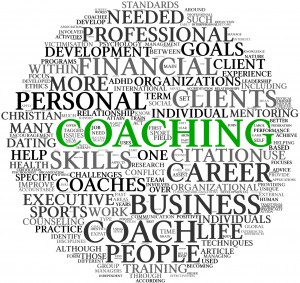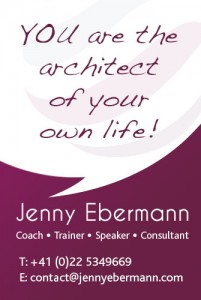I have! Long before I became a professional coach myself and when I was still living in Canada, I had the pleasure of closely working with an excellent coach, who helped me quite a lot on my professional path, navigating the stormy waters of life in an international organization. 
As a matter of fact, I decided to become a coach myself back in 2007 as I had been constantly training and mentoring people in global settings across the globe. Then living in Zurich, I began looking out for an adequate and professional school as already back then many people called themselves ‘coach’ without really having followed a thorough education (even without having ever coached anybody)!).
Two years, many coachings, supervisions, sessions and a dissertation plus Swiss level exam later, I finally had my credentials in hand. Naturally, being myself and international chameleon and speaking/writing many languages, my specialty became coaching/counselling in intercultural and global settings. Expatriates, foreigners living in or planning to move to a certain country, professionals working in an international environment and their spouses have since then been a main focus of interest.
In addition, practicing mindfulness, and related techniques since many years, I am bringing this knowledge into my day-to-day work. It really is amazing how self-awareness, openness and non-judgment enable you to deal with differences in a very effective way. Especially, as uncertainty is a more or less persistent companion nowadays, leading to stress and ambiguity, mindfulness techniques brought into coaching and linked to dealing with intercultural issues and situations of difference are a powerful tool that everybody can learn.
If you are:
- Dealing with a challenging situation in your career or at home
- Settling into a new environment, be it a different culture or other
- Working in an international environment
- Planning to move abroad or to another region soon
- Dealing with uncertainty, stress, ambiguity
- Looking for help and guidance on your way forward
- Looking for personal growth and development
- …
Coaching/Counselling can support you on your journey. You are not alone and nobody knows better than yourself how you are feeling and which way to go. You might simply need some clarity in your thoughts and insights as well as a fresh look at your issues. Everybody can grow and you might learn things about yourself that you would not have expected. Coaching really is for everybody and the various tools and resources can have incredible results. Be it face-to-face or online, you are the architect of your own life!
Register today and get 50% off your first 1 hour trial coaching session (online or face-to-face if you live in the French-speaking part of Switzerland)! Prices usually start at 150 CHF/hour and can be adapted if you are a student, unemployed, with an NGO or still in training and the offer is valid until the 11th of May 2014. Once registered you will receive all details by email and will then be able to decide if you want to take advantage of the offer or not (the offer is valid for the first 20 subscribers).
Looking forward to hearing from you!
Jenny









